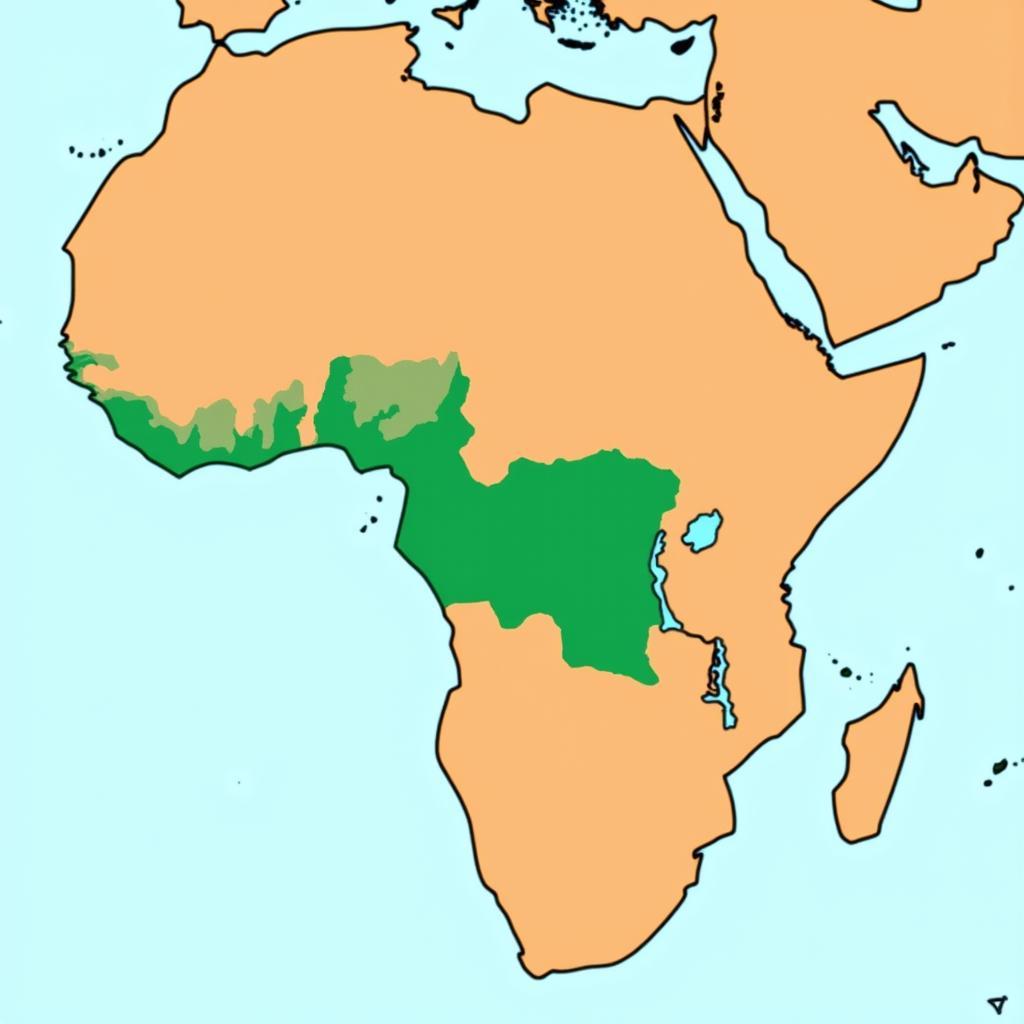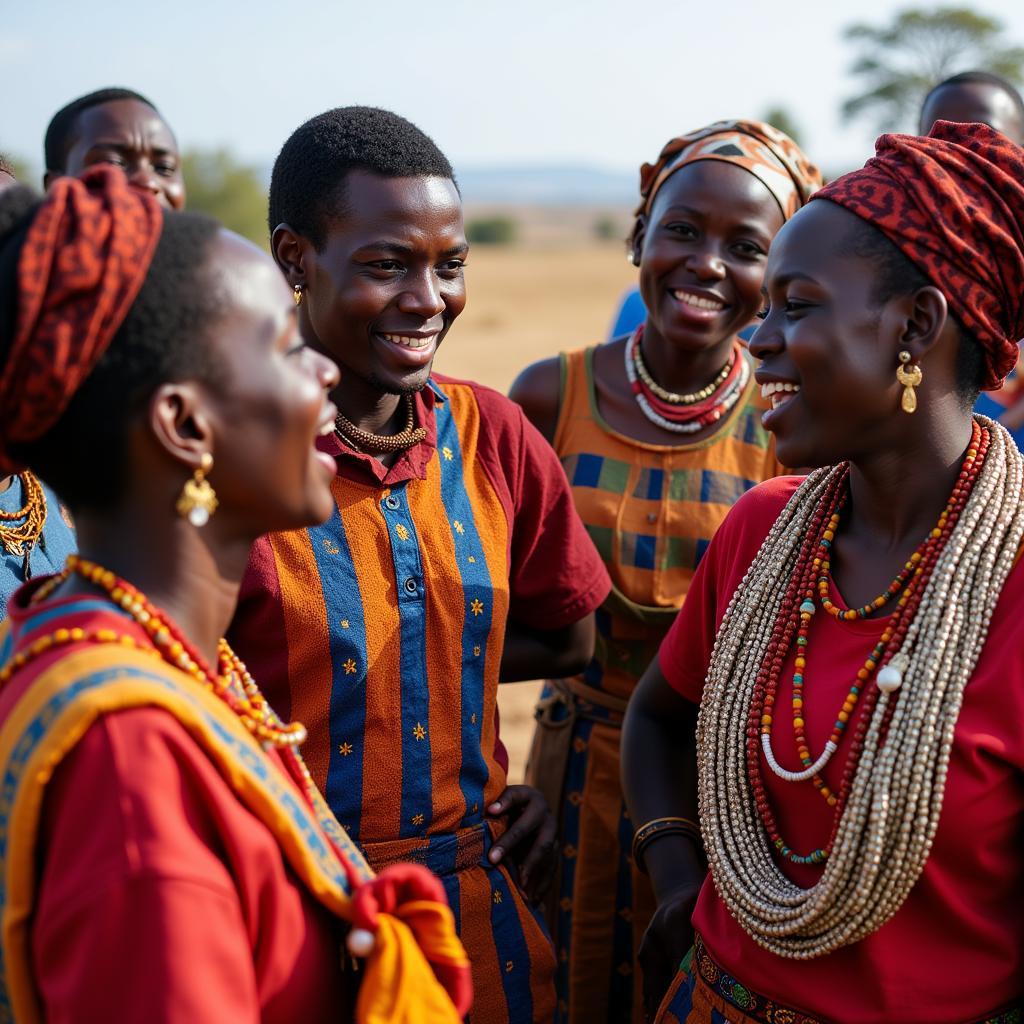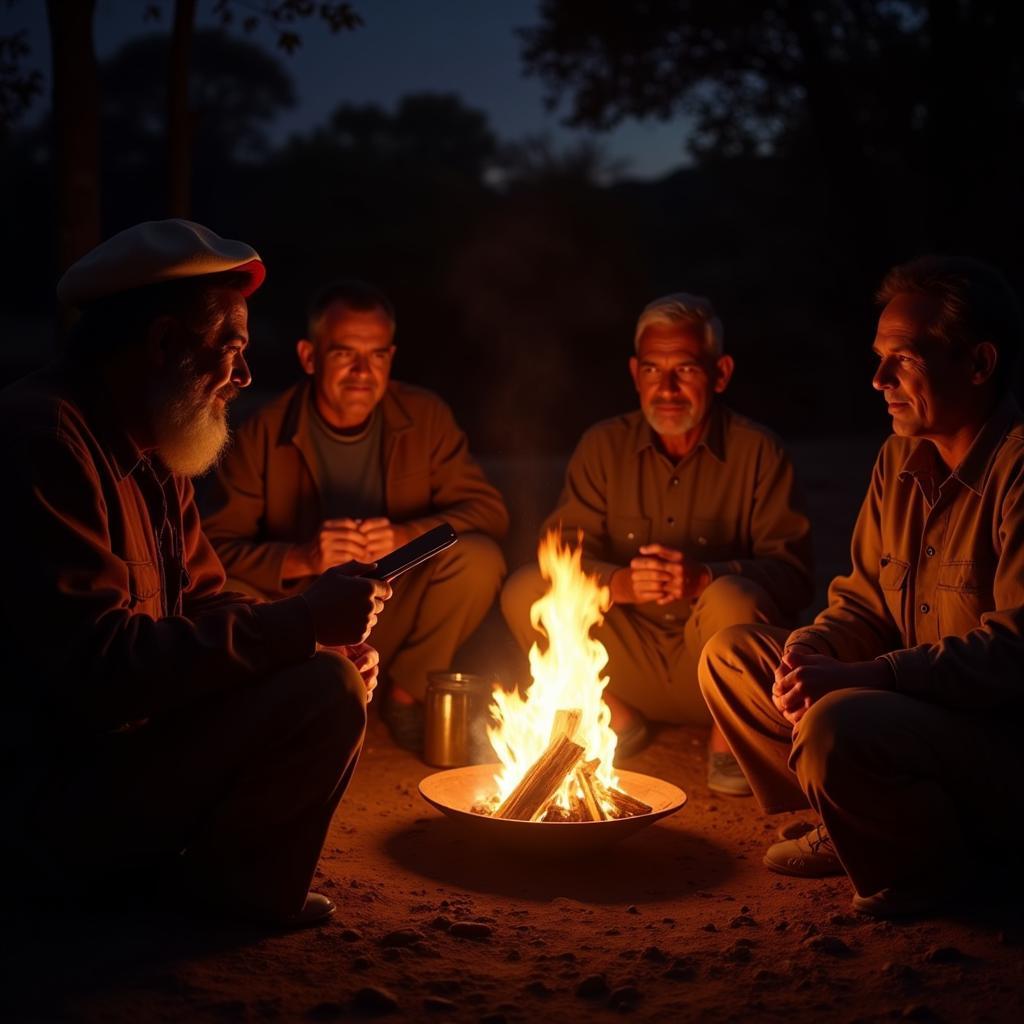Unlocking the Mystery: The African Languages Spoken in Clicks
Imagine a language where a “click” of the tongue isn’t just a sound, but a whole letter! That’s the reality for speakers of certain Southern African languages, where clicks are integral parts of everyday conversation. These fascinating sounds, often described as pops, sucks, or smacks, hold a unique place in the world’s linguistic tapestry. But what exactly are these click languages, and where did they come from?
Delving into the World of Click Consonants
While clicks might seem unusual to many, they’re simply another way humans produce sound for communication. Just like how English speakers use their lips to form the “p” sound or their tongues for “t” and “d”, click languages incorporate clicks made with different parts of the tongue.
These aren’t just random noises; they’re carefully articulated sounds with specific places of articulation. Imagine pressing your tongue against your teeth, then releasing it quickly—that’s one type of click! These clicks, combined with other consonants and vowels, create a vast array of words and grammatical structures.
 Click Language Distribution in Africa
Click Language Distribution in Africa
The Click Language Families of Southern Africa
The most well-known click languages belong to the Khoisan language family, once spoken across much of Southern Africa. These languages, including !Xhosa, Nama, and Ju|’hoan, are known for their complex systems of clicks, often having dozens of distinct click sounds.
Interestingly, clicks aren’t exclusive to the Khoisan family. Bantu languages like Zulu, Xhosa, and Sesotho, spoken by millions across Southern Africa, also feature click consonants. These languages likely adopted clicks through language contact with Khoisan speakers centuries ago, demonstrating the fluid nature of language and cultural exchange.
 Xhosa People Engaging in Conversation
Xhosa People Engaging in Conversation
The Origins and Journey of Clicks
Tracing the origins of clicks leads us deep into the annals of human history. While pinpointing the exact beginning remains a subject of ongoing research, linguistic evidence suggests that click consonants have existed in Southern Africa for thousands of years, potentially predating other known language families.
Some theories propose that clicks might have originated as a form of silent communication used during hunting or in environments where speaking loudly was disadvantageous. Over time, these clicks could have become integrated into the spoken language, eventually evolving into the complex systems we see today.
Clicks: More Than Just Sounds
For speakers of click languages, these sounds are more than just a way to form words; they’re an integral part of their cultural identity. Clicks add a unique rhythm and melody to the spoken word, making these languages both captivating to hear and challenging to learn for non-native speakers.
The use of clicks extends beyond everyday conversation. Traditional storytelling, music, and even animal sounds are often infused with clicks, further weaving these sounds into the fabric of Southern African culture.
 San People Sharing Stories Around a Fire
San People Sharing Stories Around a Fire
The Future of Click Languages
Despite their fascinating history and cultural significance, many click languages face challenges in the modern world. The dominance of major languages like English and Afrikaans often leads to younger generations shifting away from their ancestral tongues.
However, there’s hope on the horizon. Language revitalization efforts are gaining momentum, with communities and linguists working together to document, teach, and preserve these unique languages for future generations.
Exploring the World of Clicks: A Journey of Linguistic Discovery
Learning about African languages spoken in clicks provides a window into the diversity and wonder of human language. It reminds us that language is a living, evolving entity, shaped by history, culture, and human interaction.
These languages, far from being “primitive” as some mistakenly believe, demonstrate the remarkable complexity and ingenuity of human communication. By appreciating and supporting the preservation of click languages, we celebrate the richness of human heritage and the importance of linguistic diversity in our world.
FAQs about African Click Languages
1. How many click languages are there?
There are around 50-100 languages in Southern Africa that incorporate clicks, with the exact number depending on classification methods.
2. Are click languages difficult to learn?
Click languages present unique challenges for non-native speakers, particularly mastering the production and distinction of different clicks. However, with dedication and practice, anyone can learn!
3. Are click languages dying out?
Some click languages are endangered due to various factors, but revitalization efforts are underway to document, teach, and promote their use.
4. Can clicks be found in any other languages outside of Africa?
While rare, clicks can be found in some ritual languages and as paralinguistic sounds (like expressing disapproval with a “tsk”) in other parts of the world, but they don’t hold the same linguistic function as in Southern African languages.
Discover More About the Rich Tapestry of African Languages
Interested in delving deeper into the fascinating world of African languages? Explore these related topics on our website:
Let’s continue to celebrate and learn from the incredible diversity of human languages, including the captivating sounds of clicks that echo through Southern Africa. For any inquiries or assistance, reach out to us at +255768904061, kaka.mag@gmail.com, or visit our office located at Mbarali DC Mawindi, Kangaga, Tanzania. Our dedicated customer support team is available 24/7 to assist you.
